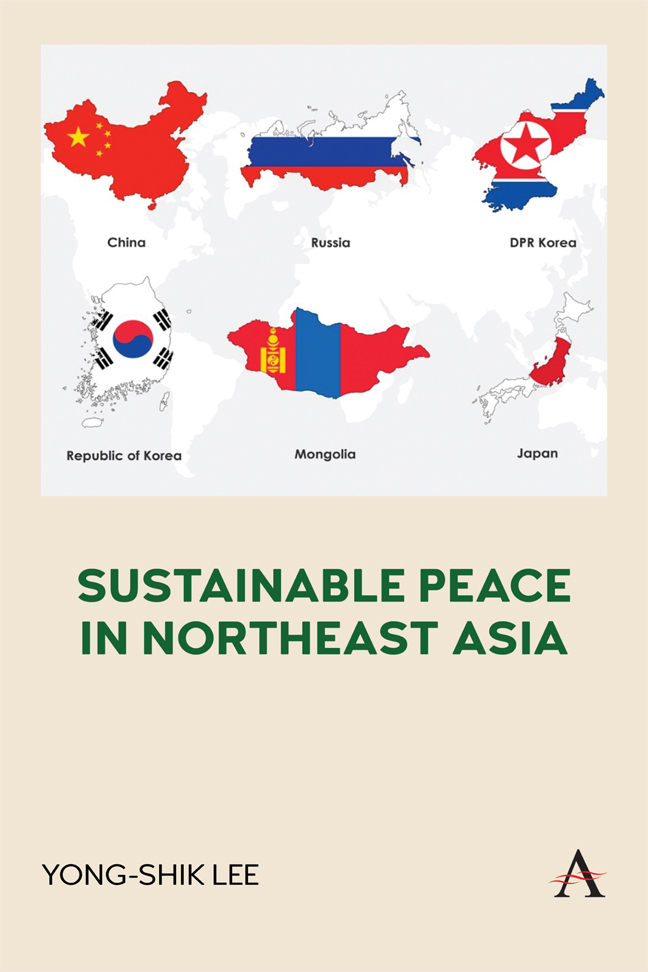Book contents
- Frontmatter
- Dedication
- Advanced Reviews
- About the Author
- Contents
- Figures
- Tables
- List of Abbreviations
- Foreword
- Preface
- Acknowledgments
- 1 Introduction
- 2 The Heritage from the Cold War—North Korea and the Nuclear Crisis
- 3 The New Asian Paradigm or Return to the Old Asia—Rise of China and its Role in the Region
- 4 A New Balancer in the Region? South Korea at the Crossroads
- 5 A Power With Rising Concerns: Escalation of Tensions Between Japan and its Neighbors
- 6 Insiders from the Outside: The United States and Russia
- 7 A Hidden Player: Mongolia and its Role in the Power Dynamics of Northeast Asia
- 8 Pathway to Peace and Stability in Northeast Asia
- Notes
- Bibliography
- Index
Foreword
Published online by Cambridge University Press: 29 February 2024
- Frontmatter
- Dedication
- Advanced Reviews
- About the Author
- Contents
- Figures
- Tables
- List of Abbreviations
- Foreword
- Preface
- Acknowledgments
- 1 Introduction
- 2 The Heritage from the Cold War—North Korea and the Nuclear Crisis
- 3 The New Asian Paradigm or Return to the Old Asia—Rise of China and its Role in the Region
- 4 A New Balancer in the Region? South Korea at the Crossroads
- 5 A Power With Rising Concerns: Escalation of Tensions Between Japan and its Neighbors
- 6 Insiders from the Outside: The United States and Russia
- 7 A Hidden Player: Mongolia and its Role in the Power Dynamics of Northeast Asia
- 8 Pathway to Peace and Stability in Northeast Asia
- Notes
- Bibliography
- Index
Summary
The strategic landscape in the Indo-Pacific region has devolved into a fraught set of conflict points, now stretching from the India-China border, through the South China Sea, the Taiwan Strait to the East China Sea. Yet no part of that arc is as complex as the Northeast Asian theatre, where the interests of six parties collide: the two Koreas, Japan, China, Russia and the United States. As U.S.-China relations have deteriorated, the Cold War divides that have been in place since the end of the Pacific War have hardened, with declining prospects of a negotiated settlement. China's struggle to define its global status and the war in Ukraine are now central drivers in this drama. But in the end, the Korean peninsula remains at its heart, precisely because it increasingly surfaces as a focal point for a broader array of competing interests. Those now include China's decision to cast its fate with Russia and the corresponding logic of tighter political, military and economic cooperation among the democracies: the United States, Japan and South Korea.
Y.S. Lee weaves an introduction to the current state of play. A distinctive feature of the approach is to work through the perspectives of each of the relevant players, with a particular bonus in considering Mongolia's contributions as well. Prof. Lee sees a long-term solution as requiring an institutional component—some kind of regional integration effort that would pull North Korea into the Asia-Pacific success story. He recognizes that building a rules-based order will hinge on where China's domestic politics is headed, but the U.S. must also take diplomatic risks and lead on the economic issues.
Prof. Lee's approach is anchored in realist fundamentals. China is clearly central to sustainable peace in Northeast Asia, and nothing will move unless Beijing comes to see it in its interest to make them move. Given China's massive political, economic, and military influence in the region, a more balanced, reconciliatory, and constructive engagement with the other Northeast Asian countries around the Korean peninsula is imperative to achieve a meaningful settlement. However, Lee's account acknowledges that the nature of China's foreign engagement is inseparable from its internal governance style. He outlines a classic liberal argument (and one with which I strongly agree): China's authoritarian turn is intimately connected with its more confrontational, aggressive, and coercive foreign policy, with Xi Jinping sitting as the architect of that approach.
- Type
- Chapter
- Information
- Sustainable Peace in Northeast Asia , pp. xxi - xxiiPublisher: Anthem PressPrint publication year: 2023

